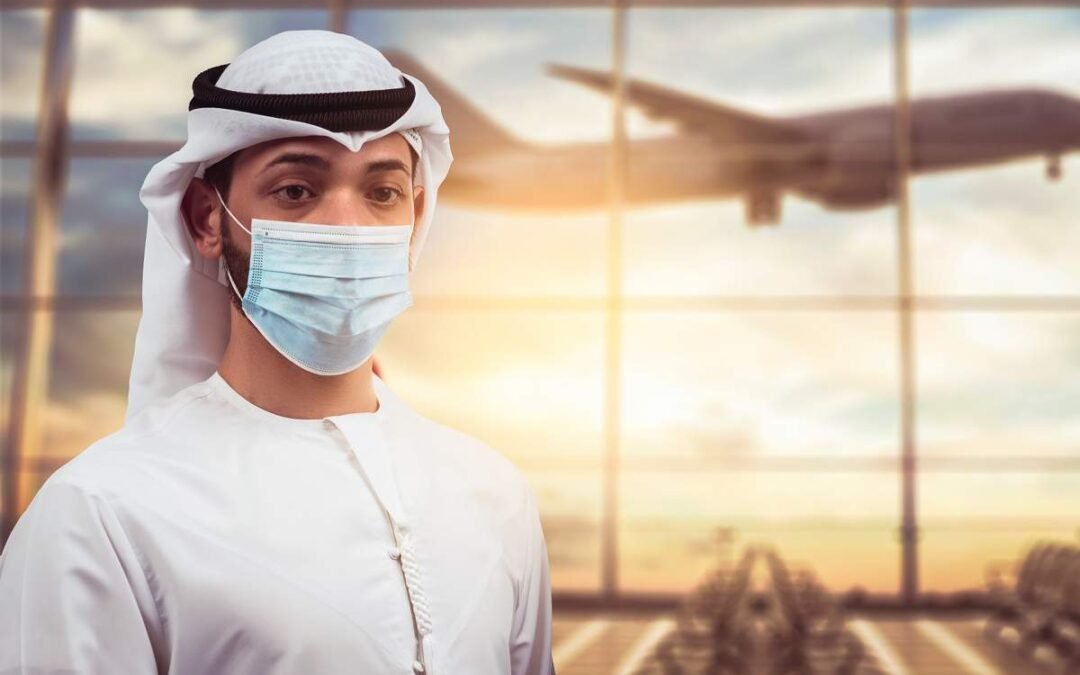
by super | Aug 15, 2025 | Medical Tourism, Medical Tourism Hospitals India, Qualified Doctors, علاج هند, مدونات الأخبار
Visiting a foreign country for the first time, especially for medical treatment, can be overwhelming. There are many uncertainties—estimating the total treatment cost, obtaining a Visa Invitation Letter (VIL), arranging travel, finding the right doctor and hospital, and overcoming the language barrier. This is where Gulf Corner Medical Tourism Bangalore steps in. We handle every aspect of your journey and ensure you are in safe hands throughout your stay.
We are a dedicated medical tourism company based in Bangalore, India, with a skilled and committed team of seasoned healthcare facilitators available around the clock to assist local and international patients seeking medical care in India. We follow a comprehensive process to meet our patients’ needs.
Throughout your treatment and stay in India, we consider you our esteemed guest and provide moral support to ease any feelings of isolation. Our services include coordinating free transportation for arrivals and departures, making all necessary travel arrangements, and helping you find optimal lodging such as hotels, serviced apartments, or guesthouses with essential amenities like a fully equipped kitchen, laundry, Wi-Fi, and more. These accommodations are conveniently located near eateries, supermarkets, pharmacies, diagnostic centers, and currency exchange services.
Our services are 100% free of cost for patients with no hidden charges whatsoever.

by super | Aug 15, 2025 | Medical Industry, Medical Tourism Hospitals India, Treatment & Hospitality, علاج هند, مدونات الأخبار
Visiting a foreign country for the first time — especially for medical treatment — is never an easy task. There are countless uncertainties, and navigating a new environment without prior experience can be overwhelming. Patients face multiple challenges, such as estimating the total funds required for treatment, struggling to obtain a Visa Invitation Letter (VIL) and making travel arrangements, finding the right doctor and hospital, and dealing with language barriers when communicating with locals.
This is where a trusted medical tourism company like Gulf Corner Medical Tourism Bangalore steps in. We handle all the necessary arrangements and ensure that patients are in the right hands throughout their stay. Based in Bangalore, India, Gulf Corner Medical Tourism is run by a skilled, dedicated team of experienced healthcare facilitators available 24/7 to assist both local and international patients seeking treatment in India. We follow a comprehensive, step-by-step process to cater to every patient’s needs with care and precision.
During their entire treatment and stay in India, our patients are treated as esteemed guests. We provide not only logistical support but also emotional and moral assistance to help them feel at home and reduce any feelings of isolation in a foreign land.
Our services include coordinating complimentary airport pick-up and drop-off, arranging all travel plans, and helping patients find the most suitable accommodation — whether hotels, serviced apartments, or guesthouses. These are equipped with essential amenities such as a fully functional kitchen, laundry facilities, Wi-Fi, and more. We also ensure that accommodations are conveniently located near restaurants, supermarkets, pharmacies, diagnostic centers, and currency exchange services.
Best of all, our services are 100% free of cost for patients, with absolutely no hidden charges. At Gulf Corner Medical Tourism Bangalore, our mission is to make your medical journey in India stress-free, affordable, and successful.

by super | Aug 15, 2025 | Medical Tourism Hospitals India, Qualified Doctors, Treatment & Hospitality, علاج هند, مدونات الأخبار
Introduction – Bangalore: The Gateway to World-Class Healthcare
Bangalore, known as the “Silicon Valley of India,” is also emerging as a global hub for advanced medical care. Its hospitals combine modern technology, internationally certified doctors, and affordable treatment costs, making it a preferred destination for patients from the Gulf region. At Gulf Corner Medical Tourism Bangalore, we have been assisting Arab patients for years, ensuring they receive top-quality healthcare while feeling culturally and linguistically comfortable.
International Standards at Affordable Prices
One of the main reasons Arab patients choose Bangalore is the perfect balance between quality and cost. Medical treatments here are often 50–70% cheaper than in Gulf or Western countries, yet hospitals follow strict international protocols for safety and hygiene. From robotic surgeries to advanced cancer treatments, patients receive world-class care without financial stress.
Specialist Doctors for Every Health Condition
Bangalore boasts a large pool of specialized consultants, many of whom have trained and worked in the USA, UK, and Europe. Whether it’s cardiology, orthopedics, neurology, oncology, fertility treatment, or cosmetic surgery, we at Gulf Corner Medical Tourism Bangalore ensure each patient is connected to the right doctor for their condition. This targeted approach reduces delays, ensures accurate diagnosis, and improves treatment outcomes.
Arabic Language Assistance & Cultural Comfort
We understand that traveling to another country for medical care can be challenging. That’s why our team provides fluent Arabic-speaking translators, Halal food arrangements, and accommodations that suit the needs of Arab families. We even arrange nearby prayer facilities so patients can maintain their spiritual routine during treatment.
Full Medical Tourism Support from Start to Finish
Gulf Corner Medical Tourism Bangalore offers complete assistance — from free online consultation and second opinion before travel to visa processing, airport pickup, hospital coordination, and post-treatment follow-up. We also help arrange sightseeing trips to famous Indian landmarks for patients and their families once recovery begins, making the journey a mix of healing and memorable experiences.

by super | Aug 15, 2025 | Medical Tourism Hospitals India, Treatment & Hospitality, علاج هند, مدونات الأخبار
Introduction
Travelling abroad for medical care can be stressful, but at Gulf Corner Medical Tourism Bangalore, we make the entire journey smooth, affordable, and culturally comfortable for patients from Saudi Arabia, UAE, Oman, Kuwait, Qatar, and Bahrain. Our aim is to ensure that from the moment you contact us until you return home healthy, every step is professionally managed with care and understanding. We offer end-to-end assistance, ensuring your medical trip to India is not only successful but also stress-free.
Free Online Consultation & Second Opinion
Before you even step foot in India, we connect you with top specialist doctors for a free online consultation and second opinion. This means you receive a detailed diagnosis, suggested treatment plans, and timelines well in advance. By doing so, you save time, avoid unnecessary delays, and arrive in Bangalore fully prepared for your treatment journey.
Free Estimated Treatment Costs
We understand that cost planning is an important part of medical travel. That’s why we provide patients with a detailed cost estimate from the hospital — completely free of charge. This allows you to prepare your budget in advance and avoid unexpected expenses during your stay in India.
Visa Assistance & Complete Travel Arrangements
Our expert team assists you in obtaining your Visa Invitation Letter (VIL) and guides you through the visa process. We also help with booking flight tickets, arranging airport pickups, and finding suitable accommodation. Everything is designed to make your journey hassle-free, so you can focus on getting better.
Hospital Coordination & Comfortable Stay
With years of experience in the medical tourism industry, we connect you to the best hospitals and renowned doctors in Bangalore that match your treatment needs. We also help arrange budget-friendly yet comfortable accommodation, ensuring you and your family have a pleasant stay during the treatment period.
Arabic Translator Support & Local Sightseeing
We know the importance of communication in medical care, which is why we provide skilled Arabic-speaking translators who stay with you during consultations and hospital visits. After treatment, we can arrange tours to famous destinations like the Taj Mahal, Red Fort, Kerala, and Mysore, giving you a chance to relax and recover while experiencing the beauty of India. Throughout your journey, our team provides emotional and moral support, ensuring you never feel alone.

by super | Aug 15, 2025 | Medical Tourism, Medical Tourism Hospitals India, Qualified Doctors, علاج هند, مدونات الأخبار
About Us – Gulf Corner Medical Tourism Bangalore
At Gulf Corner Medical Tourism Bangalore, we specialize in connecting patients from the Gulf region — including Saudi Arabia, UAE, Oman, Kuwait, Qatar, and Bahrain — with world-class healthcare services in India. Our mission is simple: to make high-quality, affordable treatment accessible while ensuring complete cultural, linguistic, and religious comfort for our patients. From the first inquiry to post-treatment follow-up, we provide end-to-end assistance so patients can focus on recovery, not logistics.
We understand that traveling abroad for medical care can be overwhelming, especially for those unfamiliar with the country, language, and healthcare system. That’s why our team, led by Abu Khalid, offers personalized guidance at every stage of the journey. We help patients find the best hospitals and specialist doctors in Bangalore, negotiate treatment costs, and ensure they receive timely care without long waiting lists. Every service is tailored to match the cultural expectations of Arab patients, from Halal-certified meals to private family accommodations.
1. Introduction: Why Bangalore is a Top Medical Tourism Hub
Bangalore, India, has emerged as one of the most sought-after medical destinations for patients from Saudi Arabia, UAE, Oman, Kuwait, Qatar, and Bahrain. Known for its world-class hospitals, skilled doctors, and advanced treatment technology, the city offers top-quality healthcare at costs up to 70% lower than in the Gulf. At Gulf Corner Medical Tourism Bangalore, we specialize in connecting Arab patients with the right hospitals, specialists, and treatments while ensuring complete cultural and linguistic comfort.
2. Free Medical Consultation and Second Opinions
Before traveling to India, patients can benefit from free online consultations and second opinions from top Indian doctors. Simply send your medical reports, and our team will arrange a video consultation or written assessment to help you understand the diagnosis, available treatments, and expected costs. This service allows Arab patients to make confident and informed decisions from the comfort of their homes.
3. Transparent Cost Estimates and Treatment Planning
We provide clear, upfront cost estimates tailored to each patient’s needs, ensuring there are no hidden charges. Whether you need cardiac surgery, orthopedic treatment, dental implants, fertility care, or cosmetic surgery, we create a personalized treatment plan in collaboration with leading hospitals in Bangalore. This step helps patients budget effectively before traveling.
4. Complete Travel and Hospital Coordination
Once a patient decides to travel, Gulf Corner Medical Tourism Bangalore handles visa invitation letters, airport pickups, hospital admissions, Arabic translator support, and comfortable accommodations near the hospital. We also arrange priority doctor appointments, ensuring that patients don’t face long waiting times.
5. Beyond Treatment – Comfort and Cultural Care
Our commitment doesn’t end at the hospital. We arrange Halal meals, leisure trips to destinations like Kerala and Mysore, and emotional support for patients and their families. With a focus on العلاج في الهند and بنجلور الهند علاج, we ensure every Arab patient’s medical journey to Bangalore is smooth, safe, and stress-free.

by super | Aug 15, 2025 | Health & Wellness, Medical Tourism Hospitals India, علاج هند, مدونات الأخبار
Our History – Gulf Corner Medical Tourism Bangalore
Our services begin with free online consultations and second opinions from leading Indian specialists. Patients can share their medical reports via WhatsApp or email, and within 24–48 hours, we provide an expert evaluation, treatment options, and estimated costs. This transparency allows patients to make informed decisions before traveling. We specialize in cardiology, orthopedics, fertility and IVF, dental care, cosmetic surgery, neurology, oncology, and organ transplants, among other treatments — ensuring access to India’s top-ranked hospitals.
When it’s time to travel, we take care of visa invitation letters, airport pickups, hospital admissions, and Arabic translator support. Our strong network with multi-specialty hospitals in Bangalore ensures patients receive priority appointments and have a comfortable stay close to their treatment center. We also provide a dedicated Arabic-speaking care coordinator to assist with every step, ensuring there are no misunderstandings during consultations or procedures.
1. Tailored for Gulf Country Patients
At Gulf Corner Medical Tourism Bangalore, we understand the unique needs of Arab patients. From language and dietary preferences to cultural sensitivity, our services are designed to make every step of your journey comfortable. We work closely with hospitals to ensure that Arabic-speaking coordinators and doctors are available wherever possible.
2. Free Expert Opinions and Reports Review
We begin by offering a free review of your medical reports by India’s top doctors. This includes virtual consultations to discuss your case, answer your questions, and recommend the best treatment options. This step ensures patients are confident in their decisions before committing to travel.
3. Personalized Treatment Packages
Our packages include comprehensive treatment planning, which covers hospital fees, doctor consultations, medication, accommodation, and transportation. By providing a complete cost breakdown, patients know exactly what to expect — avoiding surprise expenses.
4. Full Travel Assistance
From visa assistance and airport pickups to arranging comfortable accommodations close to the hospital, we manage all logistical aspects of your journey. Our Arabic translators bridge the communication gap, ensuring a stress-free experience.
5. Recovery and Tourism
Post-treatment recovery is just as important as the treatment itself. We help patients relax with light sightseeing trips and culturally relevant meals. Many patients choose to visit شارع العرب في بنجلور, Kerala, or Coorg during their recovery, turning their medical trip into a memorable holiday.






